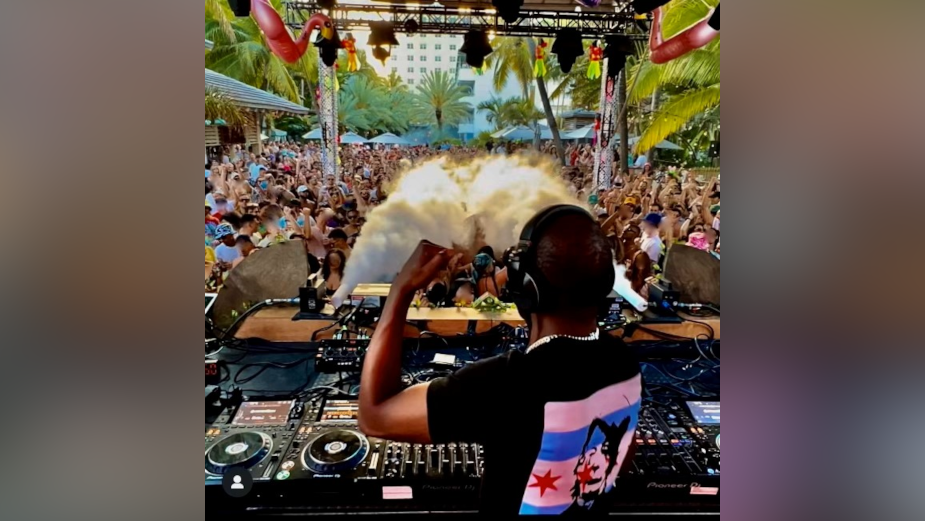
The Cultural Power of House Music

House music indeed has a rich and influential history, and it has left a lasting impact on the music industry and culture. Its origins in the underground clubs of Chicago in the early 1980’s, with artists like Jesse Saunders, Vince Lawrence, Frankie Knuckles, and others, have significantly shaped the development of electronic dance music (EDM) and various other music genres. Let's delve into some of the points you raised:
Cultural and Social Significance of House Music:
House music's profound connection to its disco roots is evident in its evolution and cultural significance. House music emerged as a natural progression from the disco era, marked by the transformation of disco songs into a more mechanical and beat-driven form. This evolution wasn't without its challenges, and the genre faced opposition and negative stereotypes, particularly due to the lingering impact of the "Disco Sucks" movement and the infamous "Disco Demolition Night."
The disco era, which thrived in the late 1970’s, was a cultural phenomenon characterised by vibrant, pulsating dance music, extravagant fashion, and a celebration of diversity. Disco clubs were places where people from all walks of life, irrespective of race, gender, or sexual orientation, gathered to dance and celebrate. House music's connection to disco roots is clear in its evolution and cultural impact. Emerging from disco's transformation into a more mechanical and beat-driven form, house music faced challenges due to the "Disco Sucks" movement and "Disco Demolition Night." The disco era, thriving in the late 1970’s, celebrated diversity and inclusivity on dancefloors, but it also drew opposition from some, primarily white males, who perceived it as a threat to the status quo. "Disco Demolition Night" at Chicago's Comiskey Park in 1979, intended to symbolise disco's demise, descended into chaos, highlighting the tension between tradition and inclusivity. House music, rooted in Chicago's underground clubs and deeply connected to black and LGBTQ+ communities, carried on the legacy of unity, celebrating diversity and countering resistance on the dance floor. Major labels had all but abandoned disco feeding into racist and homophobic diatribes that were pushing against progress created by the civil rights movement.
Innovation in DJing and Music Production:
The development of house music was closely tied to the evolution of DJing and music production techniques. Pioneering DJs like Frankie Knuckles played a crucial role in remixing and re-editing songs, creating the distinctive sound of house music. As technology advanced, DJs and producers incorporated synthesisers, samplers, and drum machines, leading to the creation of new sub genres within house music.
Global Spread of House Music:
House music quickly spread internationally and became popular in Europe and beyond. Hits like "Love Can't Turn Around" and "Jack Your Body" in the UK marked significant milestones in its global expansion. The rise of independent labels and the integration of house music into the mainstream music industry accelerated its worldwide reach.
House Music and EDM:
The relationship between house music and EDM is complex. EDM has evolved from various electronic music genres, including house. It has become a genre of choice for festival-goers, with massive events like Tomorrowland in Belgium, Ultra Music Festival in the United States, and Electric Daisy Carnival (EDC) drawing hundreds of thousands of attendees. EDM incorporates elements from house music, trance, techno, and more, creating a diverse and vibrant music scene.
Mainstream Pop and House Music Fusion:
Several mainstream artists, including Beyoncé, Drake, Kaytranada, Vic Mensa, and others, have incorporated elements of house music into their work. Beyoncé's use of "the Speech" as an opening theme demonstrates the enduring influence of house music in contemporary pop culture.
Opportunities for Advertisers:
The first House music recording was released in January of 1984 so we are approaching the 40th Anniversary of House Music’s birth, we expect celebrations worldwide. House music and its culture offer opportunities for advertisers to connect with large diverse audiences in authentic ways. Brands can align with the spirit and values of the genre, creating partnerships that resonate with fans. Slang Music Group has been at the forefront of the genre since its inception and can serve an important role as a bridge between brands, their agencies and relevant artists in House Music culture facilitating connection, execution and delivery of best in class content.
In conclusion, house music's legacy is undeniable, and its influence continues to shape the music landscape. Its journey from underground Chicago clubs to global prominence demonstrates its enduring appeal and power to unite people through music and dance. This year Brands have an opportunity to authentically join the party and amplify the beat.












